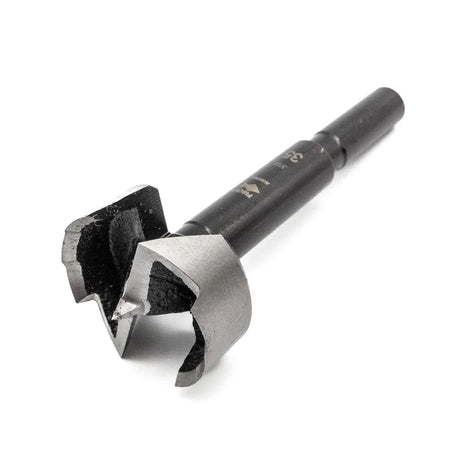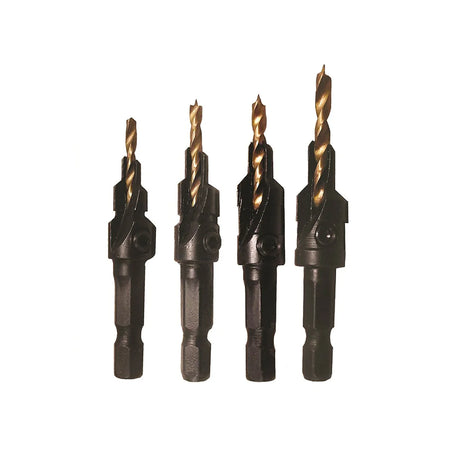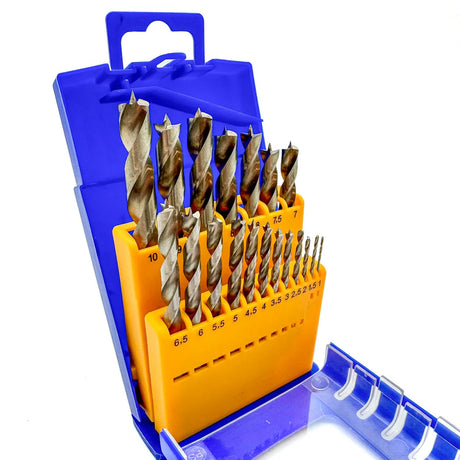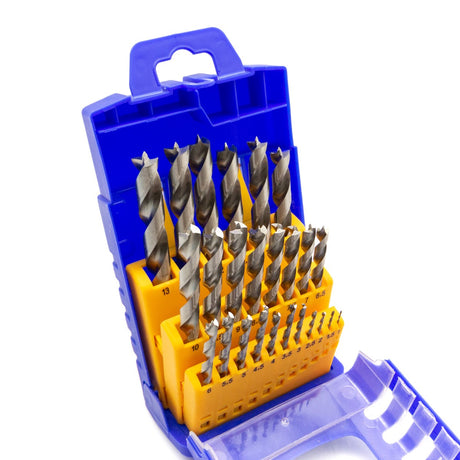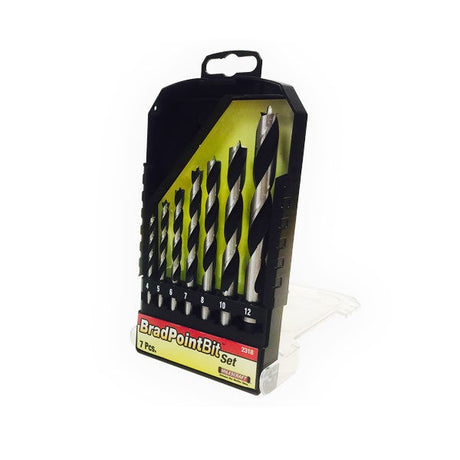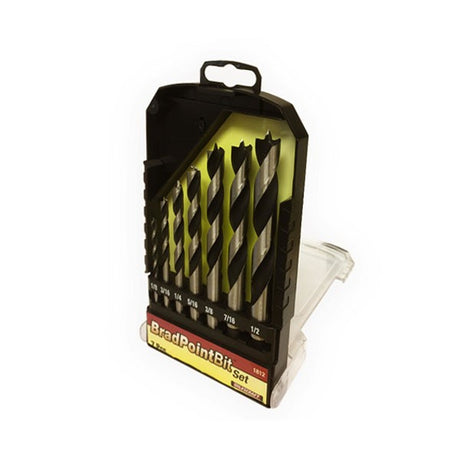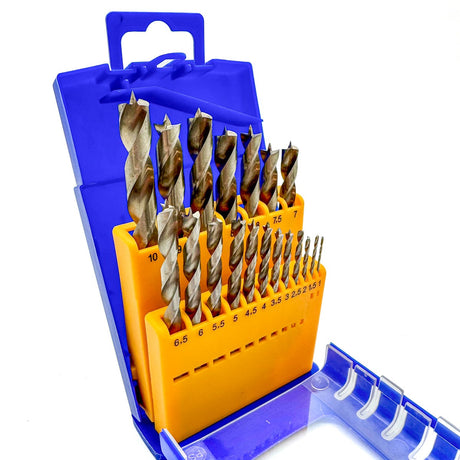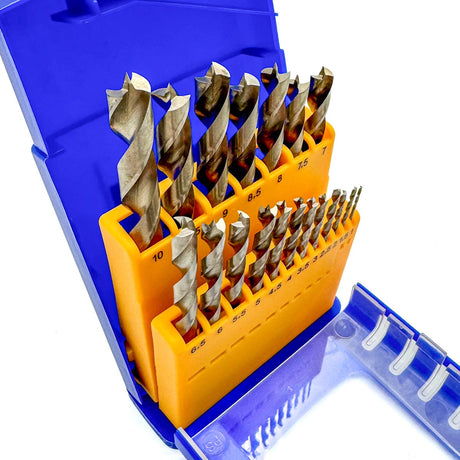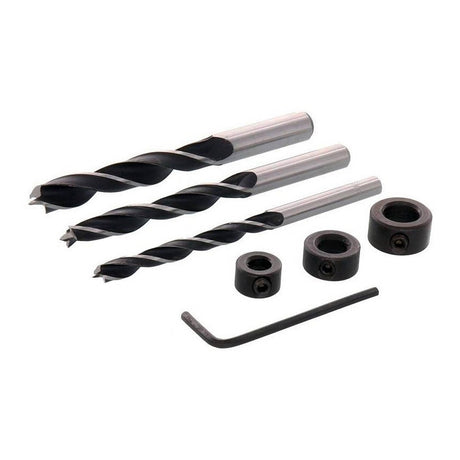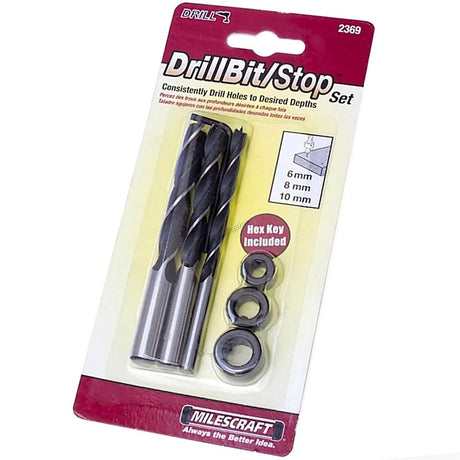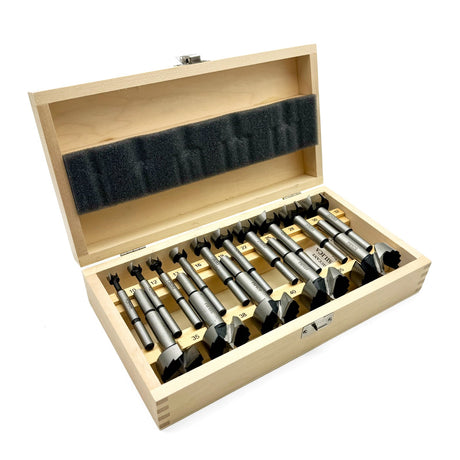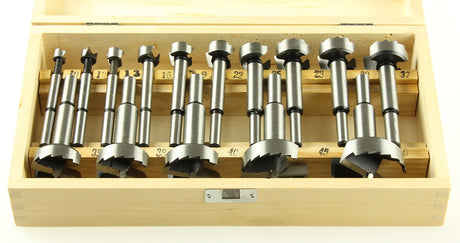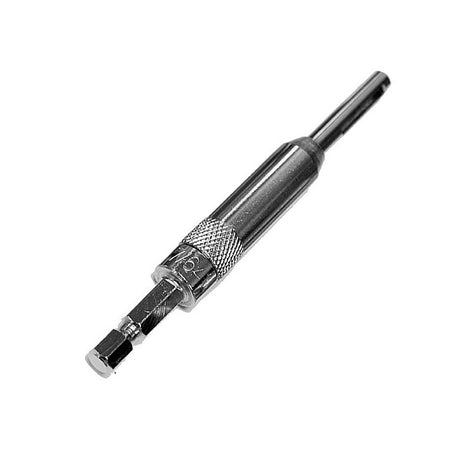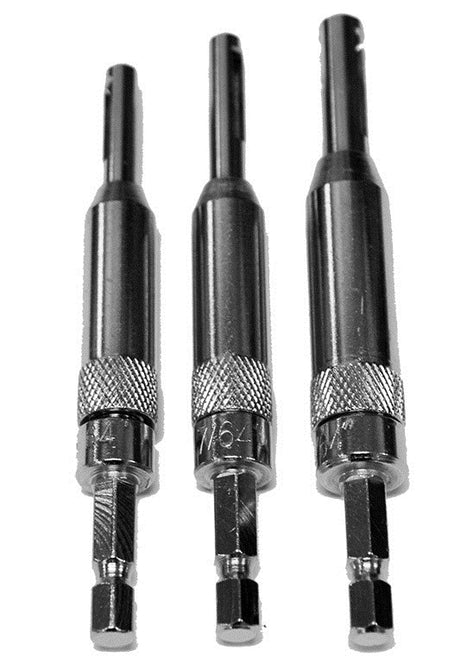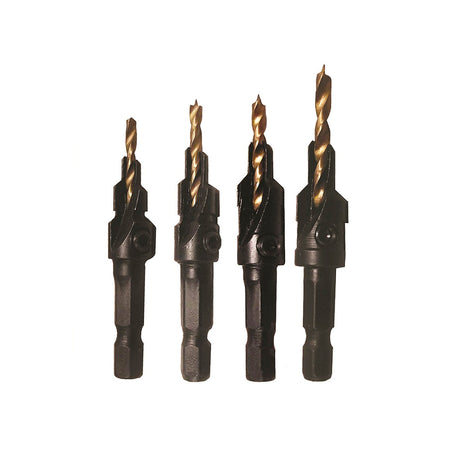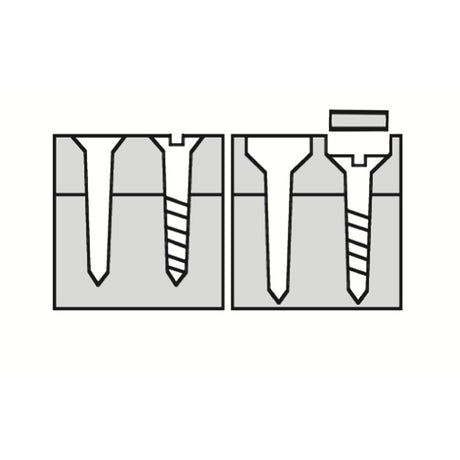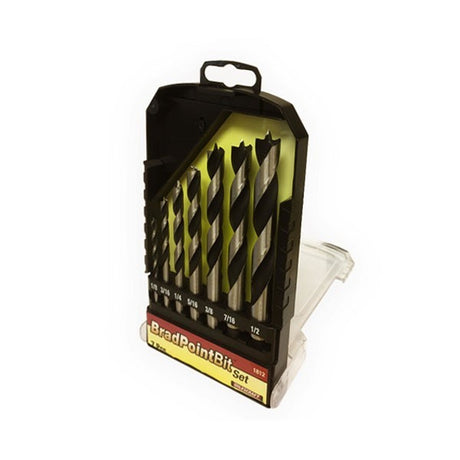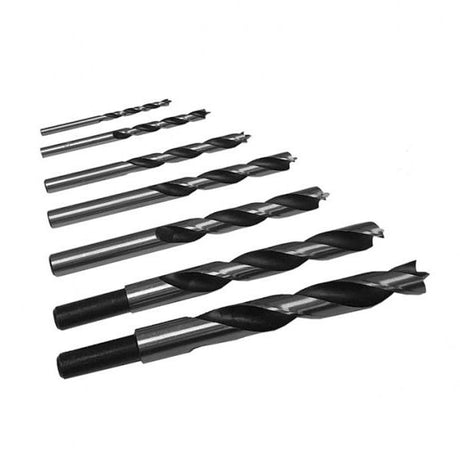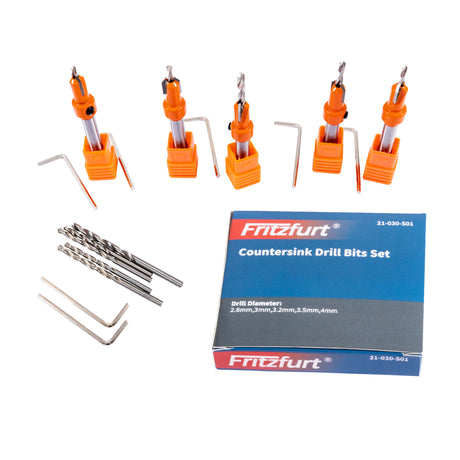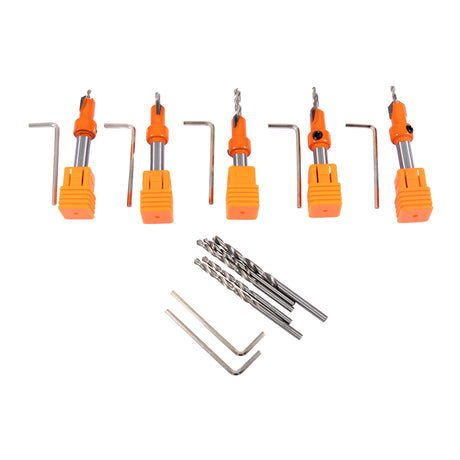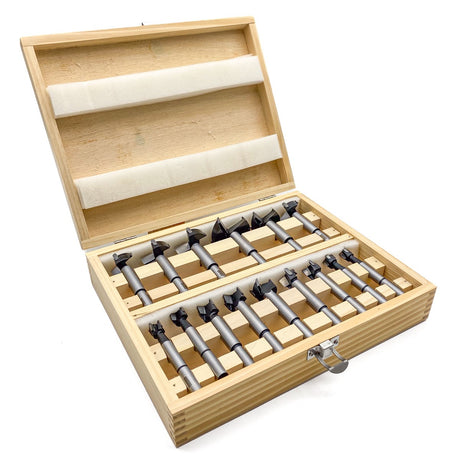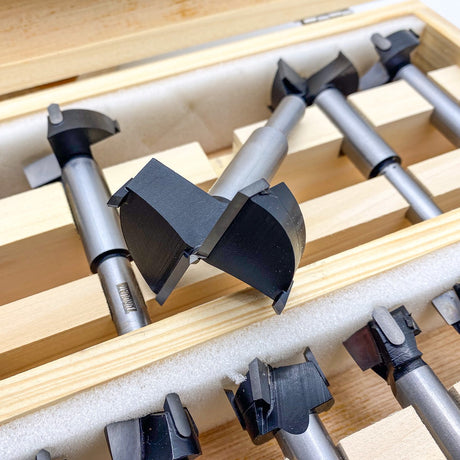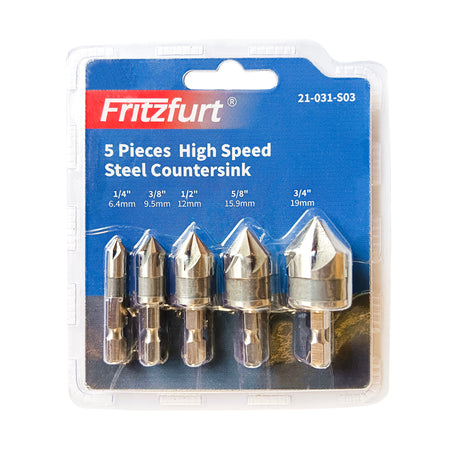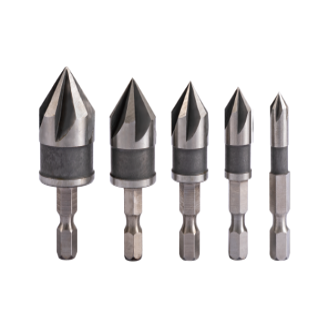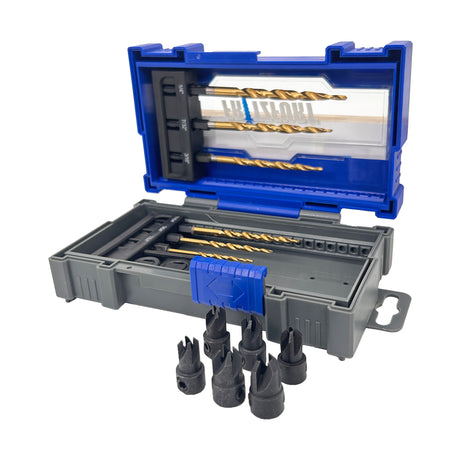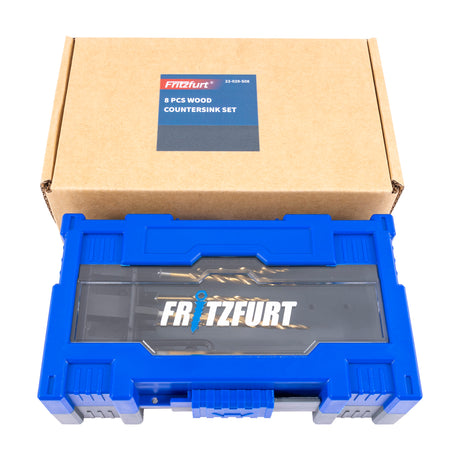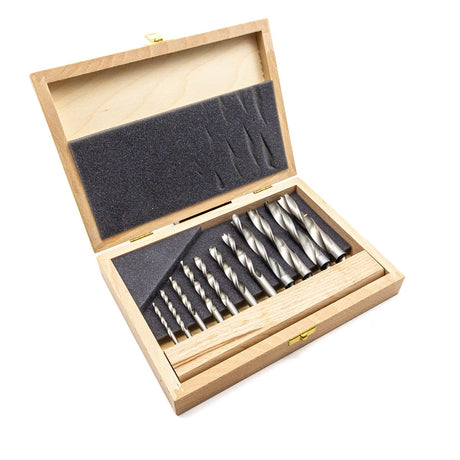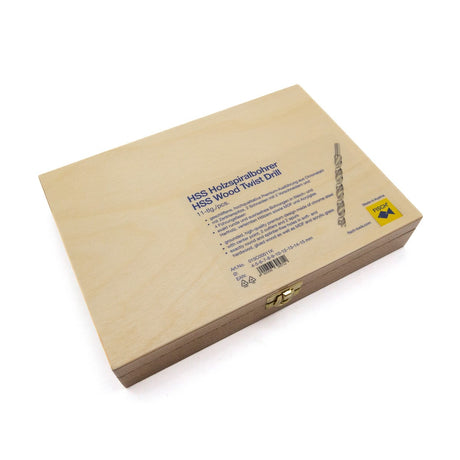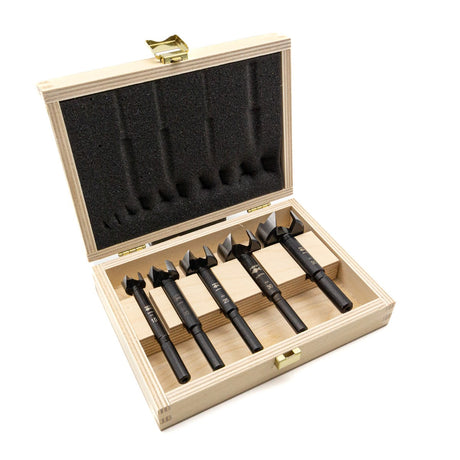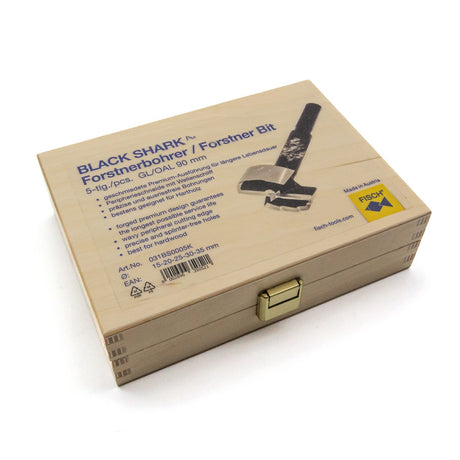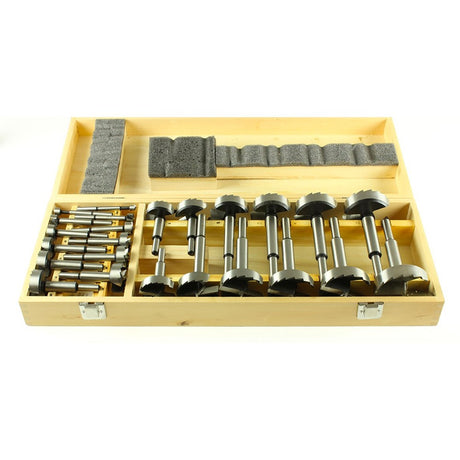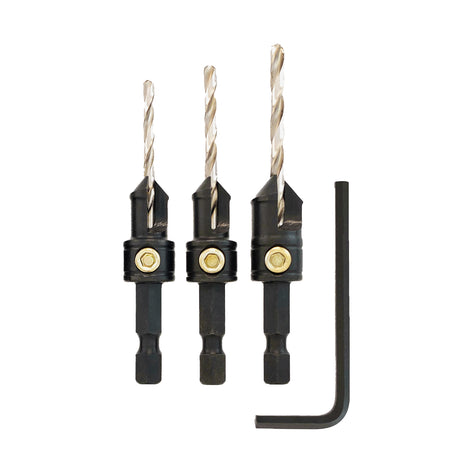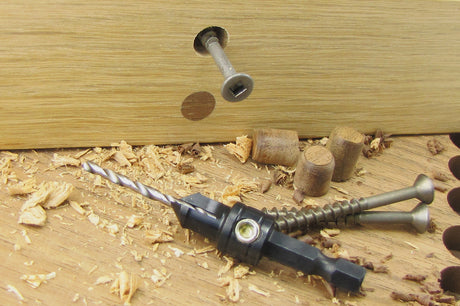Fisch
Fisch Standard Brad Point Drill Bits 25 Piece Set Metric HSS
$136.00$159.90Unit price /UnavailableLow stock (10+ units)Milescraft
Milescraft Metric Brad Point Drill Bit Set
$22.90$26.90Unit price /UnavailableIn stockFisch
Fisch Standard Brad Point Drill Bits 19 Piece Set Metric HSS
$84.90$99.90Unit price /UnavailableIn stockMilescraft
Milescraft Bradpoint Drill Bit and Stop Set of 3 Metric 6mm 8mm 10mm
$9.50$10.90Unit price /UnavailableBaladonia
Baladonia Forstner Bit Set of 15 Metric HSS Sawtooth
$129.90Unit price /UnavailableVery low stock (1 unit)Milescraft
Milescraft Hinge Bit Set of Three Vix Bits
$20.50$23.90Unit price /UnavailableIn stockMilescraft
Milescraft Counter BIt Set of Four Countersink Counterbore Drill Bits
$18.90$21.90Unit price /UnavailableMilescraft
Milescraft Imperial Brad Point Drill Bit Set
$18.90$26.90Unit price /UnavailableVery low stock (3 units)Fritzfurt
Fritzfurt Countersink Drill Bits for Timber Set of 5
$17.90Unit price /UnavailableLow stock (9 units)Torquata
Torquata Boring Bits Tungsten Carbide Tipped Set of 15 Metric Forstner Bits
$359.90Unit price /UnavailableLow stock (4 units)Fritzfurt
Fritzfurt Rose Head Countersink Bits Set of 5 HSS
$24.90Unit price /UnavailableIn stockFritzfurt
Fritzfurt Tapered Countersink Drill Bits for Timber Set of 8 with Stop Collars
$34.90Unit price /UnavailableIn stockFisch
Fisch Professional Brad Point Drill Bits 11 Piece Set Metric HSS
$299.90Unit price /UnavailableFisch
Fisch Black Shark Pro Set of 5 Forstner Bits for Hardwood Metric
$221.00$259.90Unit price /UnavailableIn stockBaladonia
Baladonia Forstner Bit Set of 24 Metric HSS Sawtooth
$399.00Unit price /UnavailableIn stockSnappy
Snappy Set of 3 Gold Screw Countersink Drill Bits 1/4in Hex Shank
$73.50Unit price /UnavailableIn stock
Drill bits are indispensable tools in professional workshops and home setups. Drill Bit sets offer a versatile selection of sizes and types for different drilling needs. These sets can include everything from precision twist bits for wood and metal to specialised bits for masonry and glass. The primary benefit of owning a drill bit set is the convenience and readiness for tackling any project that comes your way, ensuring you always have the right bit for the job. Quality sets are designed for durability and long-lasting sharpness, providing clean and precise holes in a variety of materials.
Explore our collection to find the perfect drill bit set to enhance your drilling capabilities, ensuring you're equipped for any task. But why stop there? Explore our range with long drill bits for those hard-to-reach places, versatile drill chucks for quick bit changes, and precision countersink drill bits for flawless finishes. Our hand drill attachments expand your tool's versatility, while tungsten carbide drill bits offer unparalleled durability for the most demanding materials. Each product is designed to broaden your project possibilities and help you easily achieve professional results. Discover the tools that will take your work to the next level.
FAQs
What are the different types of drill bits commonly used in woodworking?
In woodworking, drill bits are tailored for different tasks: Twist drill bits for general drilling, brad-point bits for precise holes with clean edges, Forstner bits for flat-bottomed holes without tear-out, spade bits for rough-bore drilling, and auger bits for deep, clean holes in thick wood. Each type is designed to meet specific requirements, ensuring woodworkers can achieve the desired outcome with precision and efficiency.
How do I choose the right drill bit size for a specific task?
Choosing the right drill bit size depends on the task and the required fastener or hole size. Measure the diameter of the hole you need to make or consult the specifications for the hardware you're using. For tasks requiring precise fits, such as dowelling, select a bit that matches the exact size needed. Start with a smaller bit when in doubt, as you can always make the hole larger if necessary.
What is the optimal drill bit for hardwoods?
High-speed steel (HSS) drill bits are optimal for drilling into hardwoods. Their durability and resistance to high temperatures make them ideal for the hardness of these materials. When drilling into hardwood, it's also crucial to use slower speeds to reduce friction and prevent burning, ensuring a cleaner cut and extending the life of the bit.
What is the difference between high-speed steel (HSS) and carbide drill bits?
High-speed steel (HSS) drill bits are made from a steel alloy that offers durability and resistance to high temperatures, making them suitable for general drilling tasks. Carbide drill bits, on the other hand, are made with carbide tips fused to a metal body, providing exceptional hardness and wear resistance, ideal for drilling into tougher materials and prolonged use. Carbide bits maintain their sharpness longer but can be more brittle than HSS.
How do coating materials on drill bits affect performance in woodworking?
Coating materials on drill bits, such as titanium or black oxide, enhance performance by strengthening the bit, maintaining hardness, and reducing friction and heat buildup during drilling. These coatings can extend the life of the drill bit, improve drilling speed, and offer better chip removal. They are particularly beneficial in prolonging the sharpness and structural integrity of the bit when working with dense woods and extended drilling sessions.
What are the best practices for sharpening and maintaining wood drill bits?
Maintaining wood drill bits involves regular inspection for dullness and damage. Sharpening can be done using a drill bit sharpener or by hand with a file or sharpening stone, focusing on the cutting edges while maintaining the bit's angle. Keeping bits clean and storing them properly can prevent rust and wear. Lubrication may also be required for certain bits to keep them functioning smoothly.
How does the flute design in drill bits influence wood chip removal?
The flute design in drill bits is crucial in wood chip removal. Flutes are the grooves that spiral up the bit, creating pathways for chips to exit the hole. A deeper or wider flute allows for more efficient chip removal, reducing friction and heat. The design and number of flutes affect how quickly and cleanly material is removed, with fewer, larger flutes being better for fast chip ejection and more flutes providing smoother cuts.
How can I prevent tear-out when drilling into timber?
Several strategies can be employed to create a cleaner finish and prevent tear-out when drilling into timber. Start by using a sharp drill bit and drilling slowly to minimise splintering. Placing a sacrificial piece of wood beneath your workpiece can support the wood fibres, reducing tear-out on the underside. Applying masking tape over the area where you plan to drill helps to hold the wood fibres together, reducing splintering on the entry and exit points. If drilling all the way through, drill halfway from one side, then flip the workpiece over and finish drilling from the other side to ensure clean entry and exit holes. These techniques combined can significantly reduce tear-out, resulting in a smoother, more professional finish on your woodworking projects.
Can you explain the advantages of brad-point bits over standard twist bits for precision woodworking?
Brad-point bits offer significant advantages for precision woodworking, including a sharp, centred tip that prevents wandering and ensures the bit starts precisely where intended. Their side cutters cleanly slice through wood, producing clean, splinter-free holes with straight sides. This design is especially useful for tasks requiring high accuracy, such as dowel holes or when working with fine, detailed joinery.
What are the considerations for drill bit speed and feed rate specific to various wood types?
Adjusting the drill bit speed and feed rate when drilling into different wood types is crucial to match the material's hardness. Hardwoods require a slower speed to avoid burning and ensure clean cuts, while softer woods can be drilled at higher speeds. The feed rate should be adjusted to produce large, consistent chips, indicating efficient cutting. Too slow a feed rate may result in overheating and dulling of the bit, while too fast can cause tear-out and damage to the wood.



